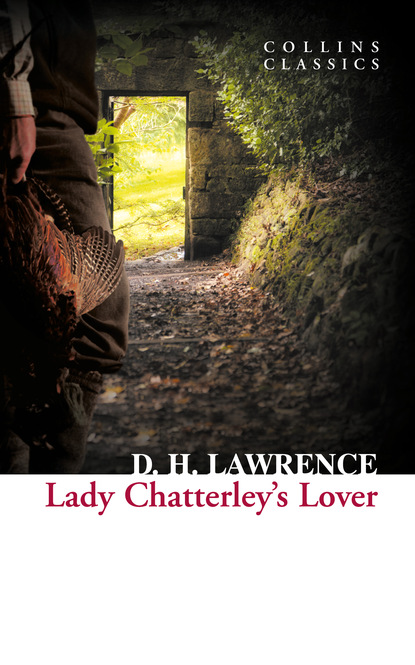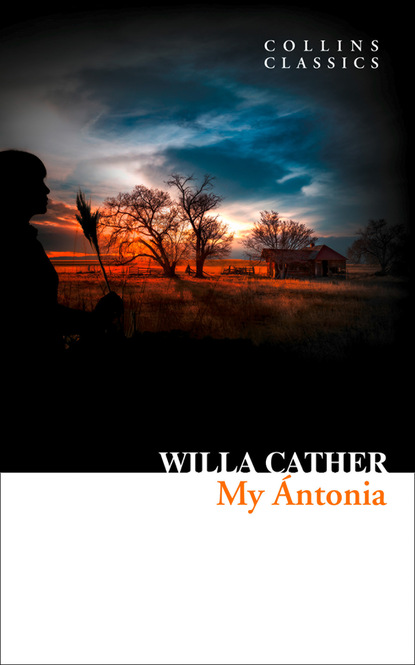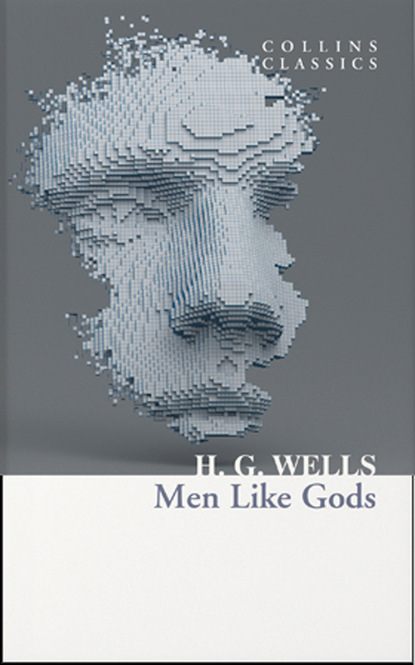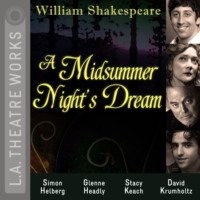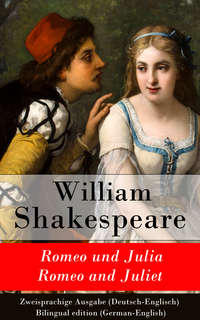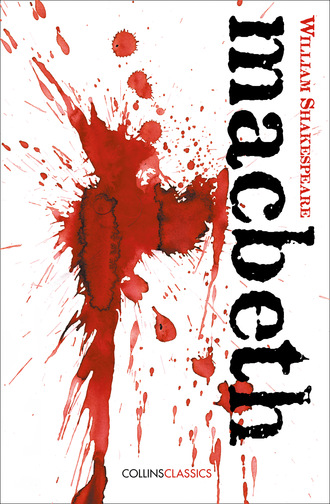
Полная версия
Macbeth
this Duncan
Hath borne his faculties so meek, hath been
So clear in his great office, that his virtues
Will plead like angels…
(Act I, Scene vii, lines 16–19)
to his poignant regrets at the end of his life:
My way of life
is fall’n into the sear, the yellow leaf…
(Act V, Scene iii, lines 22–3)
How does a man who knows what human goodness is, and respects it, decline so rapidly into a murderous tyrant? Essentially, he chooses to do so, and knows that it is his choice, because of his ambition, the influence of a beloved wife, and the value he attaches to being thought a brave man. None of these aspects of his character is, in itself, evil, but he allows himself to be led by them into evil Ambition becomes an insatiable hunger, his love for his wife leads him to agree to frightful deeds, and his fighting quality degenerates into bloodlust. Accordingly, he alienates all our respect, yet evokes genuine pity at the last. We recognize a human being.
Lady Macbeth seems to alienate respect in playgoers and readers even more completely, and may not evoke pity, even at the end of her life. Yet she is, potentially, a ‘partner in greatness’ who, like Macbeth, takes it for granted that greatness is all that matters. Like so many other words in the play, this word is interpreted in various ways by various people. Lady Macbeth is a woman who will ‘do anything’ for her husband, just as he will ‘do anything’ for her. She is even willing, and able, to deny her own deepest feelings as a woman and a human being: it is at the moment when she declares that she would kill her own child rather than go back on her word that she inspires most repugnance; and it is at this moment that they are at one. It is the moment of commitment for both of them, and the signal for the train of events which plunges the whole of their society into tragic suffering. She is broken by it, and before long becomes a pathetic, deranged creature, as much a prey to guilt as Macbeth is.
No other character in the play is nearly as fully drawn as Macbeth and Lady Macbeth. Duncan is a good old man, reluctant to see evil in anyone. Malcolm is a tougher version of his father, and his personality seems at one point to veer towards interesting complexity (in the long conversation with Macduff at the English court). Banquo acts as a foil to Macbeth, as a man similarly tempted but too staunchly honourable to fall into evil ways himself – though he appears to do nothing to follow up his suspicions of Macbeth. Even Macduff, although he becomes the tyrant’s executioner, does not develop into a particularly subtle personality, perhaps because we are not allowed to see him agonizing over the decision to leave his family and go to England. All these supporting characters revolve around Macbeth and Lady Macbeth, however. After Macbeth has died, we just feel confident that those who have survived will lead Scotland wisely and well.
Dramatic Structure and the Thematic Pattern
The first comment in this introduction was ‘Macbeth is a simple play’. This is particularly true of its dramatic structure and thematic pattern, both of which depend on the central issue of a struggle between good and evil. The play begins with a clear-cut physical conflict with, seemingly, no ambiguities. Scotland is a ‘good’ society ruled by a good man: the enemies are traitors, vicious invaders and contemptible mercenaries. Macbeth emerges as the champion of goodness and is immediately transformed into the enemy of goodness. Evil power proliferates, good men are destroyed, other good men run away. By Act IV, Scene iii, evil seems triumphant. Then Malcolm and Macduff reach agreement and the good King Edward lends his holy power. Faith and hope return and fortune swings away from evil. Act V shows the final battle. Scotland is cleansed and the new king acknowledges the need for supernatural goodness (the grace of Grace) to support human striving.
LIST OF CHARACTERS
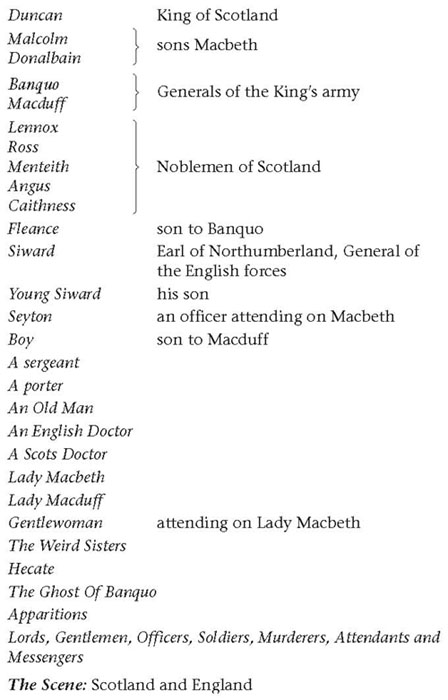
Scene I
An open place
[Thunder and lightning. Enter three WITCHES.]
First Witch
When shall we three meet again?
In thunder, lightning, or in rain?
Second Witch
When the hurlyburly’s done,
When the battle’s lost and won.
Third Witch
That will be ere the set of sun. 5
First Witch
Where the place?
Second Witch
Upon the heath.
Third Witch
There to meet with Macbeth.
First Witch
I come, Graymalkin.
Second Witch
Paddock calls. 10
Third Witch
Anon!
All
Fair is foul, and foul is fair:
Hover through the fog and filthy air.
[WITCHES vanish.]
ACT I SCENE I
This short opening scene gives an immediate impression of mystery, horror and uncertainty. These witches would have been truly frightening to an audience in Shakespeare’s day, many of whom would have seen, or at the very least known about, women burnt at the stake for selling themselves to the Devil. Macbeth is introduced by name by the Third Witch, and this raises questions in the audience’s mind – who is he? And what can these disgusting hags want with him?
3. hurlyburly the confused noise of storm and battle. Thunder was produced for the Elizabethan stage by rolling cannon-balls. Nowadays the same effect is produced by shaking sheets of metal, or through electronic and digital sound equipment.
4. lost and won the first of many apparent contradictions and confusions (see line 12 of this scene). The words can mean ‘decided one way or the other’.
9. Graymalkin a name for a grey cat, which was a common ‘familiar’ of witches. A familiar was a demon which attended and assisted a witch; these spirits usually took some rather sinister form.
10. Paddock a toad. This is the Second Witch’s familiar. Sounds were probably made off-stage to represent the calls of these familiar spirits, though it is difficult to imagine what sound a toad was supposed to make.
11. Anon! I am coming at once.
12. This line is a kind of motto for the witches. They delight in a reversal of all the normal values. Macbeth seems to involve himself with them by echoing the phrase in Act I, Scene iii, line 39.
13. fog and filthy air this may have been produced by burning resin under the stage; again, in today’s theatre if an effect is required it is more likely to be produced by smoke machine, dry ice or something similar.
Scene II
A camp near Forres
[Alarum within. Enter KING DUNCAN, MALCOLM, DONALBAIN, LENNOX with ATTENDANTS, meeting a bleeding SERGEANT.]
Duncan
What bloody man is that? He can report,
As seemeth by his plight, of the revolt
The newest state.
Malcolm
This is the sergeant
Who like a good and hardy soldier fought
‘Gainst my captivity. Hail, brave friend! 5
Say to the King the knowledge of the broil
As thou didst leave it.
Sergeant
Doubtful it stood,
As two spent swimmers that do cling together
And choke their art. The merciless Macdonwald –
Worthy to be a rebel, for to that 10
The multiplying villainies of nature
Do swarm upon him – from the Western Isles
Of kerns and gallowglasses is supplied;
And Fortune, on his damned quarrel smiling,
Show’d like a rebel’s whore. But all’s too weak; 15
For brave Macbeth – well he deserves that name –
Disdaining Fortune, with his brandish’d steel
Which smok’d with bloody execution,
Like valour’s minion, carv’d out his passage
Till he fac’d the slave; 20
Which ne’er shook hands, nor bade farewell to him,
Till he unseam’d him from the nave to th’ chaps,
And fix’d his head upon our battlements.
Duncan
O valiant cousin! worthy gentleman!
Sergeant
As whence the sun gins his reflection 25
Shipwrecking storms and direful thunders break,
So from that spring whence comfort seem’d to come
Discomfort swells. Mark, King of Scotland, mark:
No sooner justice had, with valour arm’d,
Compell’d these skipping kerns to trust their heels, 30
But the Norweyan lord, surveying vantage,
With furbish’d arms and new supplies of men,
Began a fresh assault.
Duncan
Dismay’d not this
Our captains, Macbeth and Banquo?
Sergeant
Yes;
As sparrows eagles, or the hare the lion. 35
If I say sooth, I must report they were
As cannons overcharg’d with double cracks;
So they doubly redoubled strokes upon the foe.
Except they meant to bathe in reeking wounds,
Or memorize another Golgotha, 40
I cannot tell –
But I am faint; my gashes cry for help.
Duncan
So well thy words become thee as thy wounds;
They smack of honour both. – Go get him surgeons.
[Exit SERGEANT, attended. Enter ROSS.]
Who comes here?
Malcolm
The worthy Thane of Ross. 45
Lennox
What a haste looks through his eyes!
So should he look that seems to speak things strange.
Ross
God save the King!
Duncan
Whence cam’st thou, worthy thane?
Ross
From Fife, great King
Where the Norweyan banners flout the sky 50
And fan our people cold.
Norway himself, with terrible numbers,
Assisted by that most disloyal traitor
The Thane of Cawdor, began a dismal conflict,
Till that Bellona’s bridegroom, lapp’d in proof, 55
Confronted him with self-comparisons,
Point against point rebellious, arm ‘gainst arm,
Curbing his lavish spirit; and to conclude,
The victory fell on us.
Duncan
Great happiness!
Ross
That now 60
Sweno, the Norways’ king, craves composition;
Nor would we deign him burial of his men
Till he disbursed, at Saint Colme’s Inch,
Ten thousand dollars to our general use.
Duncan
No more that Thane of Cawdor shall deceive 65
Our bosom interest. Go pronounce his present death,
And with his former title greet Macbeth.
Ross
I’ll see it done.
Duncan
What be hath lost, noble Macbeth hath won.
[Exeunt.]
SCENE II
The second scene deals mainly with the report of the battle in which the ‘Macbeth’ we have already heard about, and another man, Banquo, have excelled. However, the feeling of uncertainty is maintained, because the outcome of the battle is left in doubt by the Sergeant. He nevertheless presents Macbeth as the decisive factor, and Ross gives the same impression from his point of view when he provides the final news that the battle has been won. We get a remarkable picture of Macbeth as a kind of superman, a fearless, ferocious, almost untouchable champion of right against treachery.
1–3. He can report…state He looks as though he has come, wounded, straight from the battle, and will be able to give us an up-to-date report.
5. ‘Gainst my captivity to save me from being captured.
6. knowledge of the broil news of the battle.
9. choke their art (the two exhausted swimmers) prevent each other from using their swimming skill.
10. to that to that end, i.e. to show that he is without doubt a traitor.
12. swarm upon him like lice.
12. Western Isles islands to the west, including Ireland and the Hebrides.
13. kerns and gallowglasses lightly-armed foot-soldiers and horsemen armed with axes.
14–15. Fortune the Roman goddess Fortuna, regarded as highly unreliable. Macbeth ignores her (Disdaining Fortune, line 17) and takes his fate into his own hands, a trait we are to see repeated later in the play.
17–18. brandished steel…execution His sword steamed with the hot blood of those he had just killed.
19. valour’s minion the favourite of Valour (personified in much the same way as Fortune).
carv’d out his passage cut his way through the men on the battlefield.
22–3. Till he unseam’d…he thrust his sword in at the navel (nave), ripped him open up to the jaws (chaps), then cut his head off and stuck it on the battlements.
24. cousin Macbeth and Duncan were both grandsons of King Malcolm, but in any case the word cousin was often used by sovereigns of their noblemen.
24. worthy gentleman! What Macbeth has just done seems hardly gentlemanly, but there is no irony in Duncan’s remark. Such actions in defence of king and country would have been regarded as truly to be admired.
25–8. As whence…Discomfort swells ‘Just as storms fatal to ships can burst out of the east, where the sun first shines, so danger springs from the place where everything seems well.’ Note the irony here, even if the Sergeant doesn’t realize it. These words could be a warning to Duncan about Macbeth, who seems fair.
30. Compell’d…heels Forced these unreliable soldiers to rely on running away.
31. Norweyan an old form of Norwegian.
31. surveying vantage seeing his chance. No doubt Duncan’s troops had relaxed on seeing the kerns run away.
32. With furbished arms ‘having repaired their weapons’ (or perhaps taken up new ones).
34–5. Yes…the lion The Sergeant is being very sarcastic. ‘Yes, they were about as dismayed as an eagle is by a sparrow, or a lion by a hare,’ he says.
36. sooth truth.
37. as cannons…cracks Like cannons with double charges of gunpowder.
39–40. Except they meant…Golgotha Unless they intended to bathe in the steaming wounds (of their enemies) or make the battle as grimly memorable a scene as the crucifixion of Christ.
43–4. So well…both Your words and your wounds do you equal honour.
44. smack taste.
45. Thane a Scottish nobleman and landowner, often the chief of a clan
47. So should he…strange His appearance suggests that he has strange news to tell.
50–1. Where…cold Where the Norwegian banners mock the (Scottish) sky and, as they wave, freeze our men with fear.
52. Norway himself King Sweno of Norway.
54. a dismal conflict one which filled the Scottish forces with foreboding.
55. Bellona’s bridegroom the bridegroom of Bellona, the Roman goddess of war. Macbeth is being compared with Mars, the god of war himself.
55. lapp’d in proof wearing tried and tested armour.
56. Confronted…self-comparisons Gave him something (i.e. a model of a fighting man) to compare himself with.
58. Curbing his lavish spirit overcoming his insolent courage.
61. craves composition begs for peace terms.
62. Nor would we…men We would not allow him to bury his dead soldiers.
63. disbursed paid.
63. Saint Colme’s Inch a small island in the Firth of Forth, now called Inchcolm. (St. Colme is another form of St. Columba.)
64. dollars These coins were in fact not minted until the early sixteenth century, 500 years after the time of the real Duncan and Macbeth. Does it matter that Shakespeare that Shakespeare isn’t worried about such inaccuracy? Could it have had a deliberate purpose?
65–6. deceive…interest treacherously attack our dearest interests. pronounce his present death order his immediate execution.
Scene III
A blasted heath
[Thunder. Enter the three WITCHES.]
First Witch
Where hast thou been, sister?
Second Witch
Killing swine.
Third Witch
Sister, where thou?
First Witch
A sailor’s wife had chestnuts in her lap,
And mounch’d, and mounch’d, and mounch’d. 5
‘Give me’ quoth I.
‘Aroint thee, witch!’ the rump-fed ronyon cries.
Her husband’s to Aleppo gone, master o’ th’ Tiger;
But in a sieve I’ll thither sail
And, like a rat without a tail, 10
I’ll do, I’ll do, and I’ll do.
Second Witch
I’ll give thee a wind,
First Witch
Th’art kind.
Third Witch
And I another.
First Witch
I myself have all the other; 15
And the very ports they blow,
All the quarters that they know
I’ th’ shipman’s card.
I’ll drain him dry as hay:
Sleep shall neither night nor day 20
Hang upon his pent-house lid;
He shall live a man forbid;
Weary sev’nights, nine times nine,
Shall he dwindle, peak, and pine.
Though his bark cannot be lost, 25
Yet it shall be tempest-tost.
Look what I have.
Second Witch
Show me, show me.
First Witch
Here I have a pilot’s thumb,
Wreck’d as homeward he did come. 30
[Drum within.]
Third Witch
A drum, a drum! Macbeth doth come.
All
The Weird Sisters, hand in hand,
Posters of the sea and land,
Thus do go about, about;
Thrice to thine, and thrice to mine, 35
And thrice again, to make up nine.
Peace! The charm’s wound up.
[Enter MACBETH and BANQUO.]
Macbeth
So foul and fair a day I have not seen.
Banquo
How far is’t call’d to Forres? What are these,
So withered, and so wild in their attire, 40
That look not like th’ inhabitants o’ th’ earth,
And yet are on’t? Live you, or are you aught
That man may question? You seem to understand me,
By each at once her choppy finger laying
Upon her skinny lips. You should be women, 45
And yet your beards forbid me to interpret
That you are so.
Macbeth
Speak, if you can. What are you?
First Witch
All hail, Macbeth! Hail to thee. Thane of Glamis!
Second Witch
All hall, Macbeth! Hail to thee. Thane of Cawdor!
Third Witch
All hail, Macbeth, that shalt be King hereafter! 50
Banquo
Good sir, why do you start, and seem to fear
Things that do sound so fair? I’ th’ name of truth,
Are ye fantastical, or that indeed
Which outwardly ye show? My noble partner
You greet with present grace and great prediction 55
Of noble having and of royal hope,
That he seems rapt withal. To me you speak not.
If you can look into the seeds of time
And say which grain will grow and which will not,
Speak then to me, who neither beg nor fear 60
Your favours nor your hate.
First Witch
Hail!
Second Witch
Hail!
Third Witch
Hail!
First Witch
Lesser than Macbeth, and greater. 65
Second Witch
Not so happy, yet much happier.
Third Witch
Thou shalt get kings, though thou be none.
So, all hail, Macbeth and Banquo!
First Witch
Banquo and Macbeth, all hail!
Macbeth
Stay, you imperfect speakers, tell me more. 70
By Sinel’s death I know I am Thane of Glamis;
But how of Cawdor? The Thane of Cawdor lives,
A prosperous gentleman; and to be King
Stands not within the prospect of belief,
No more than to be Cawdor. Say from whence 75
You owe this strange intelligence, or why
Upon this blasted heath you stop our way
With such prophetic greeting? Speak, I charge you.
[WITCHES vanish.]
Banquo
The earth hath bubbles, as the water has,
And these are of them. Whither are they vanish’d? 80
Macbeth
Into the air; and what seem’d corporal melted
As breath into the wind. Would they had stay’d!
Banquo
Were such things here as we do speak about?
Or have we eaten on the insane root
That takes the reason prisoner? 85
Macbeth
Your children shall be kings.
Banquo


